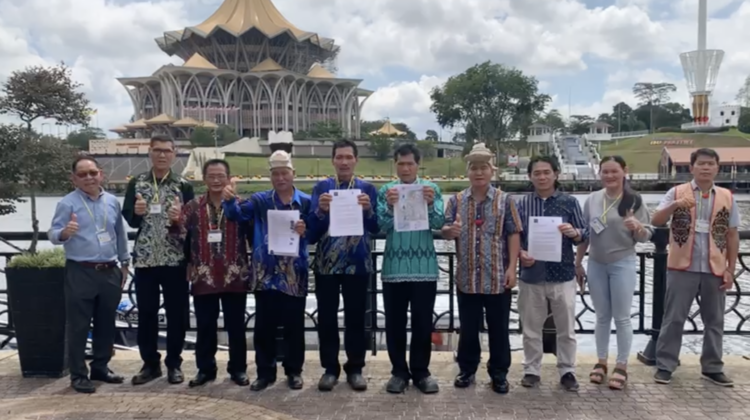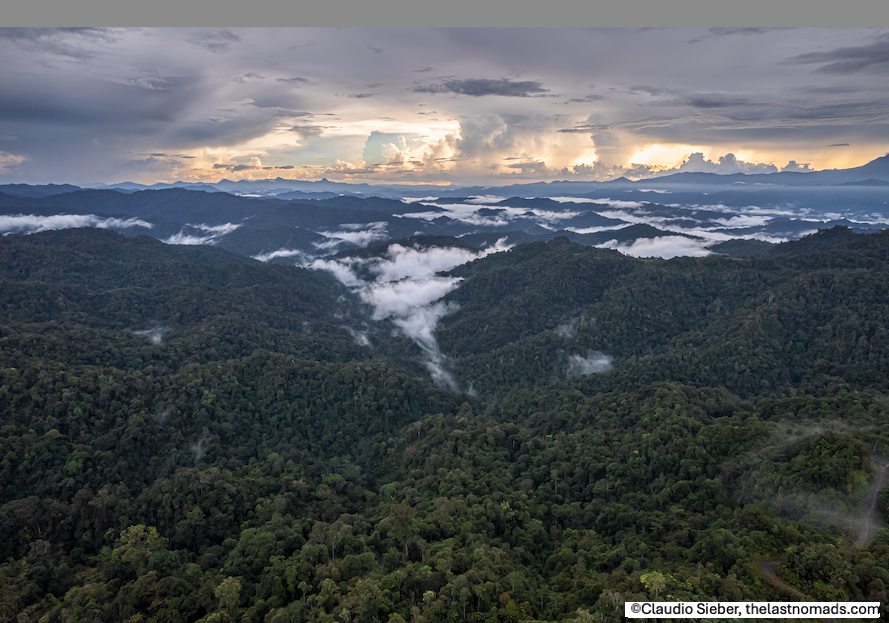Millions of hectares of Sarawak’s native territories have been handed to the logging and plantation billionaires who sucked the wealth of the land and rolled out single crops of oil palm and acacia, home to rats and snakes.
Abang Johari has pledged to turn the tide of destruction. Indeed, as the Swiss NGO Bruno Manser Fund has reminded in calling for the creation of a protected Penan Biosphere on a 87,00o hectares of their remaining hunting grounds in Magoh, Abang Johari himself was in charge of Sarawak’s State Planning Department in 1987 when it put forward the region as one of seven areas that met the criteria for a UNESCO Biosphere Reserve.
So, now that he has climbed the greasy pole to create the position of Premier for himself and moreover has claimed ‘total control’ of the state’s environment, it is time for him to put the principle into practice and enact his own proposal.
Barely a day goes by without the state government declaring what it claims are green initiatives: by simply agreeing to recognise this region and to ban the constant incursions of illegal logging activities sponsored by crony companies into native lands they could achieve some credibility at last.
Note: this item has been updated to correct figures provided for the biosphere proposal to 870 sq kilometers/ 87,000 hectares.

BRUNO MANSER FONDS, BASEL/SWITZERLAND
9 August 2024 – for immediate releasePenan advocate for UNESCO Biosphere Reserve in Borneo
On World Indigenous Peoples Day, a group of Indigenous Penan launch a campaign for a new Biosphere Reserve in Sarawak, the Magoh Biosphere. The Penan request the protection of their forests from deforestation by logging companies so they can continue to
use them sustainably, improve their standard of living and secure their rights as Indigenous people.
(Kuching, Sarawak, Malaysia) On the occasion of the International Day of Indigenous Peoples, a Penan delegation from Magoh, Sarawak, is travelling to Sarawaks capital, Kuching, to launch the campaign for a UNESCO-protected Magoh Biosphere Reserve. Thearea is to be managed, utilised and protected by the Penan, an Indigenous people of
Sarawak whose culture is closely linked to the Borneo tropical rainforest.
The claimed Magoh Biosphere Reserve covers an area of 870 square kilometres in Sarawak’s interior and connects Gunung Mulu National Park with Pulong Tau National Park. The region consists of primary and secondary rainforests with a high conservation value and plays an important role as a wildlife corridor. It is home to endangered mammals such as pangolins, the sun bear and the clouded leopard as well as several rare hornbill
species.
The Magoh Biosphere Reserve aims at stopping deforestation in the area. Penan leader Peng Megut from Long Tevenga explains: “The logging companies don’t consult us, but we are here, we have always been here, and we want to continue to protect the forest”. The Magoh Declaration was signed by 96 Penan from 15 communities and handed over to the office of Sarawak Premier, Abang Johari, today. Penan leader Guman Megut from Long Dauun hopes “that we can count on the Premier of Sarawak and that he will support our desire to protect the forest for us and future generations”.
The Penan request for the protection of the Magoh forest is not new to the Sarawak Premier: In 1987, Abang Johari, at the time Penan Minister, was in charge of a study by Sarawak’s State Planning Department that mentioned the Magoh region as one of seven areas that met the criteria for a UNESCO Biosphere Reserve.

